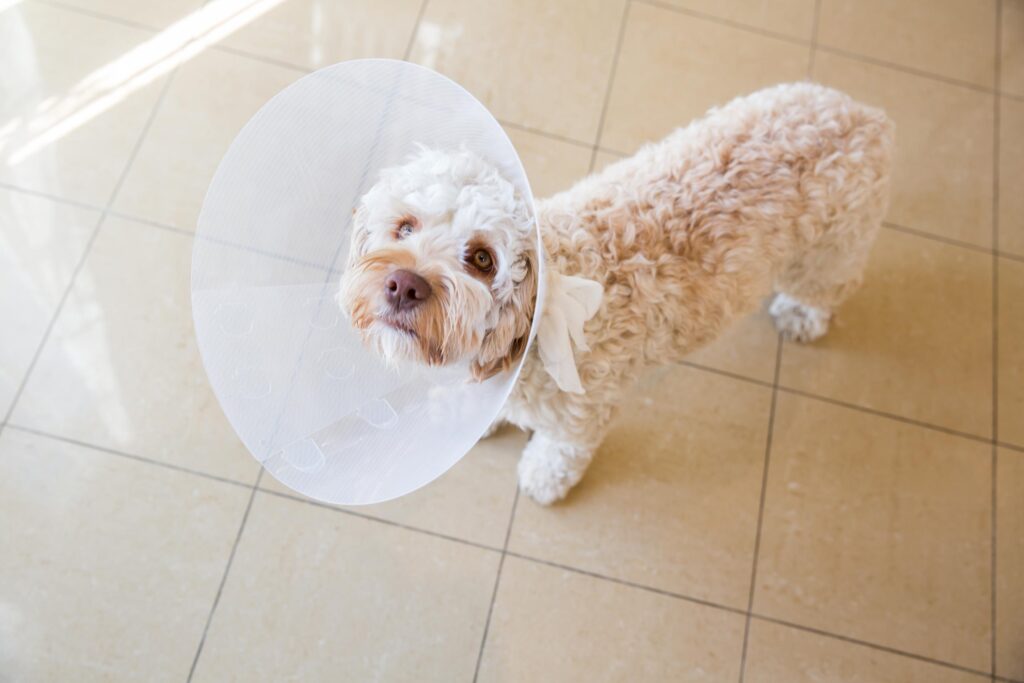Spay and Neuter Aftercare Tips for Pets

If you’ve never seen a pet come out of anesthesia, their appearance and behavior can range from perplexing to alarming. The first 24 hours can be relatively quiet, as they tend to sleep off the anesthetic. But to truly support a full, complete recovery from surgery, the days ahead are crucial. Before the cone comes off and the stitches are removed, we encourage pet owners to follow our tips for easy, straightforward postoperative pet care.
Understanding Anesthesia
Anesthesia is a medicine that allows controlled consciousness so pets don’t feel or consciously register pain. Without controlled doses of anesthetic everyone in the operating room could be at risk.
Waking Up
After their surgery, pets are woken up and gently placed in a dim, comfy, and warm kennel. We monitor them to ensure they’re ready to go home.
Many pets shake, tremble, or shiver in the hours following their procedure. Provide lots of hydration to soothe hoarse or weak vocal cords. If they cry or whine, bring them close to you for comfort and security. Reduce any possible threats to their safety by keeping them in a small room or separated space.
A Slow Shift
A pet may have glassy-looking eyes, grogginess, irritability, and nausea. If they were previously very agile or athletic, try to inhibit them from jumping up on high surfaces. This not only keeps stitches intact but reduces injury from missing their target or falling.
It may take up to 2 full days before a pet regains their appetite. Until they’re ready for full meals, offer them small bites throughout the day.
The Next 10-14 Days
Close supervision is at the center of a pet’s recovery. They need at least 10 full days of rest and relaxation.
- Do not encourage exercise or overexcitement (no running, jumping, or vigorous playing)
- Keep their incision dry. Make use of the e-collar so they don’t lick or chew their incision. You want to prevent an infection as a way to promote successful and timely healing.
- Note excessive swelling or opening of the incision. Check their stitches at least twice a day. Some blood and swelling is normal, but do keep watch over worsening symptoms.
- Do not give your pet human medications for pain, such as ibuprofen, aspirin, or acetaminophen.
- Try to maintain their daily routine, as much as possible, but allow for slight variations. Remind them when it’s time to go to the bathroom, and keep pushing fluids.
Wound Care for Dogs and Cats
Pet owners can be on the lookout for any of the following red flags following a spay or neuter surgery:
- Foul smell coming from the incision
- Worsening redness or swelling
- Pain and sensitivity (look for hiding, shaking, drooling)
- Opening or tearing of the incision site
- Bleeding or pus
- Unimproved lethargy
- No interest in food or water
Please call us at (512) 263-9292 with any questions or concerns about your pet’s spay or neuter care. We’re always here to help at BEEVET Animal Hospital.
